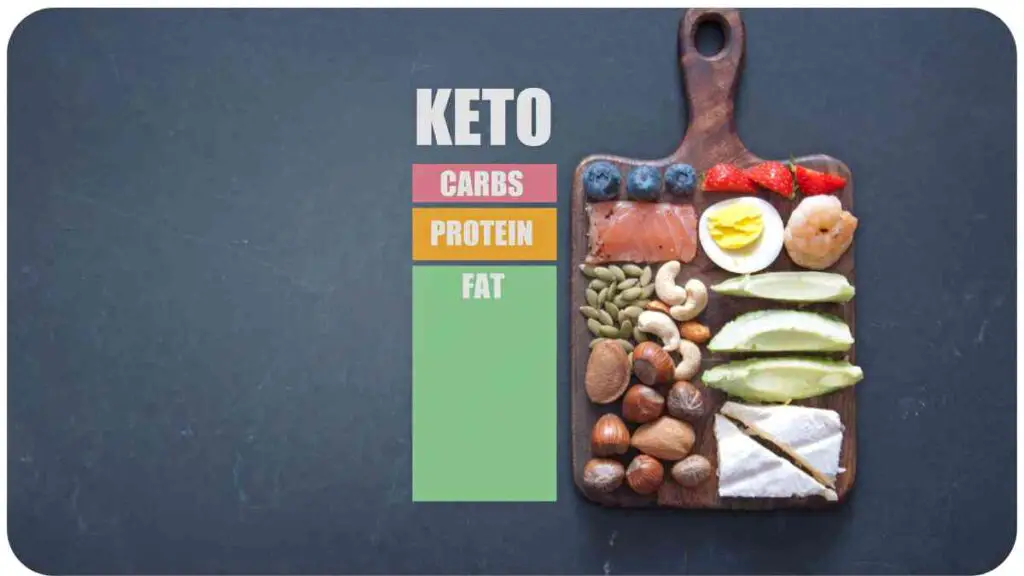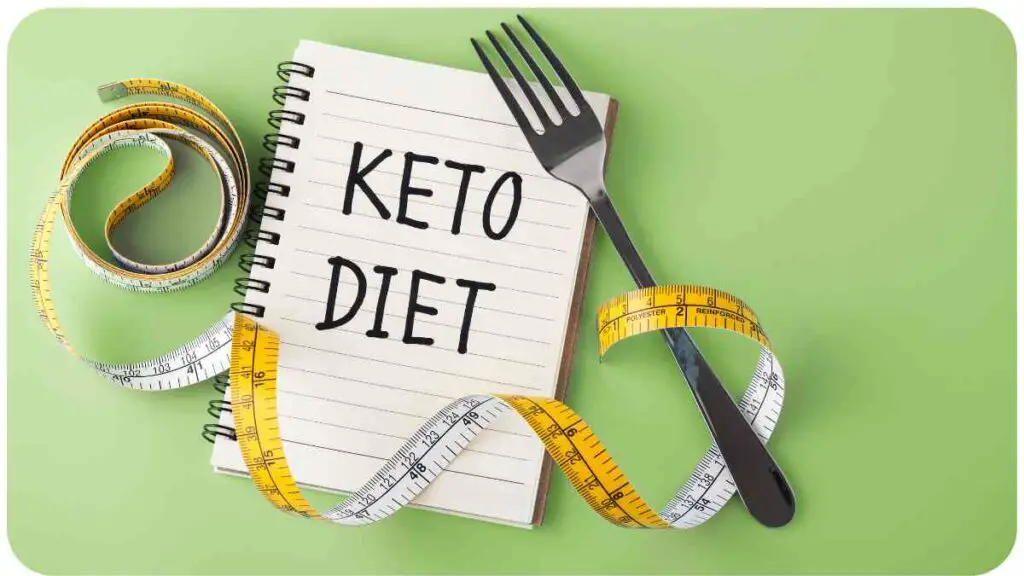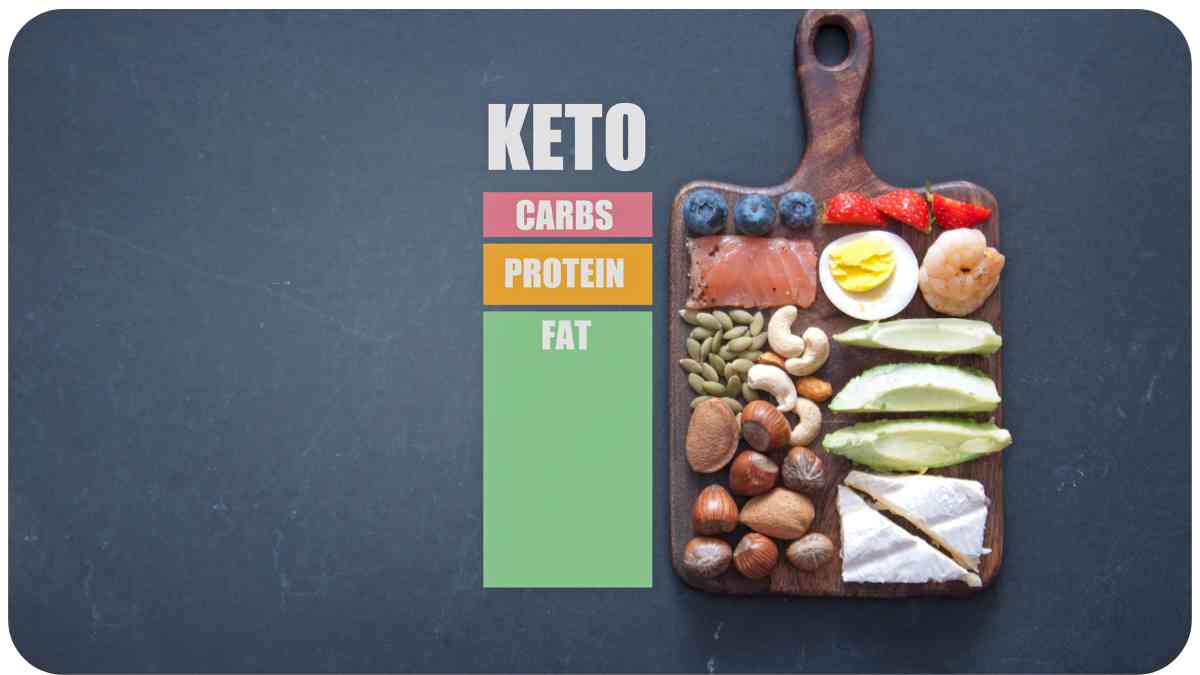Welcome to our comprehensive guide on the Keto Diet! In this article, we will dive deep into the pros and cons of following a ketogenic eating plan. Whether you’re new to the term or well-acquainted with it, we aim to provide you with valuable insights and information to help you make an informed decision about whether the Keto Diet is right for you.
Before we explore the benefits and potential drawbacks, let’s first understand what exactly the Keto Diet entails.
| Takeaway |
| Starting the Keto Diet can lead to weight loss due to reduced carbohydrate intake. |
| The Keto Diet may increase energy levels by utilizing fat as the main source of fuel. |
| Some individuals experience improved mental clarity and focus on the Keto Diet. |
| Nutrient deficiencies can be a concern on the Keto Diet, requiring careful food selection and potential supplementation. |
| The initial transition phase to ketosis, known as the “keto flu,” can cause temporary side effects. |
| The Keto Diet limits food choices, excluding high-carb foods like bread, pasta, and sugary treats. |
| Staying hydrated and managing electrolyte intake is essential for success on the Keto Diet. |
| Incorporating healthy fats like avocados and oils is key to meeting the high-fat requirements of the diet. |
| The Keto Diet can be adapted for vegetarian or vegan lifestyles with careful planning. |
| Tracking macronutrients and consulting with healthcare professionals is recommended for safe and effective implementation of the Keto Diet. |
What is the Keto Diet?
The Keto Diet, short for the ketogenic diet, is a low-carbohydrate, high-fat eating plan that has gained significant popularity in recent years. It involves drastically reducing your carbohydrate intake and replacing it with fats, which results in your body entering a metabolic state called ketosis.
The rise of plant-based eating has gained momentum in recent years, and it’s no wonder why. Incorporating more veggies into your diet is crucial for overall health and well-being.” Learn more about plant-based eating and its numerous benefits!
How Does the Keto Diet Work?
When you restrict your carbohydrate intake, your body is depleted of its primary source of fuel. As a result, it switches its energy source to ketones, which are produced from the breakdown of fats in the liver. This metabolic shift, known as ketosis, allows your body to efficiently burn fat for energy instead of relying on glucose derived from carbohydrates.
Macronutrient Ratios of the Keto Diet

To achieve and maintain ketosis, the typical macronutrient ratios for the Keto Diet are as follows: approximately 70-75% of calories from fats, 20-25% from protein, and only 5-10% from carbohydrates. These ratios may vary slightly depending on individual needs and goals.
Now that we have a foundation of understanding, let’s explore the pros of adopting a ketogenic lifestyle.
Pros of the Keto Diet
Weight Loss
One of the primary reasons individuals follow the Keto Diet is for weight loss. Since the diet promotes a low-carbohydrate and high-fat intake, it can lead to significant reductions in body weight, especially in the initial stages. By limiting carbohydrates, the Keto Diet helps control insulin levels, which in turn facilitates fat burning.
Increased Energy Levels
Many people who transition to the Keto Diet report experiencing increased energy levels. By relying on fat as the main energy source, your body can tap into its fat stores more effectively, providing a steady supply of fuel. This can result in sustained energy throughout the day, reduced feelings of fatigue, and improved overall productivity.
“Did you know that a plant-based diet offers a multitude of benefits for your health? From increased nutrient intake to reduced risk of chronic diseases, it’s time to consider embracing a plant-based lifestyle.” Discover the 15 benefits of adopting a plant-based diet.
Improved Mental Clarity
Following a ketogenic diet may also bring about improvements in cognitive function. Some individuals find that they are better able to focus, concentrate, and think clearly when they eliminate refined carbohydrates and embrace healthy fats. This heightened mental clarity can be attributed to the ketones produced during ketosis, which are known to have a positive impact on brain health.
Now, let’s explore the potential cons of the Keto Diet.
Cons of the Keto Diet
Nutrient Deficiencies
One of the challenges of adhering to a Keto Diet is the risk of nutrient deficiencies. Since the diet restricts certain food groups, such as fruits, grains, and legumes, it can be more challenging to obtain essential vitamins, minerals, and fiber. To mitigate this, individuals on the Keto Diet should focus on consuming a wide variety of nutrient-dense, low-carbohydrate vegetables and consider appropriate supplementation.
Initial Transition Phase
Transitioning to a low-carbohydrate diet can be challenging for some individuals, leading to what is often referred to as the “keto flu.” During this phase, as your body adapts to using fat as its primary fuel source, you may experience symptoms such as fatigue, irritability, dizziness, and brain fog. These symptoms are temporary and typically subside within a week or two as your body becomes more efficient at utilizing ketones for energy.
“Considering a gluten-free diet? Explore the pros, cons, and useful tips that can help you make an informed decision and navigate this dietary choice with ease.” Find out more about gluten-free diet and its impact on your health.
Limited Food Choices
Another consideration is the limited food choices on the Keto Diet. Since carbohydrates are restricted, certain foods like bread, pasta, rice, and sugary treats are off-limits. While this can be challenging for some, it also encourages individuals to explore new and creative ways of preparing meals.
Embracing healthy fats like avocados, nuts, and seeds, along with a variety of protein sources such as meat, fish, and tofu, opens up a world of delicious possibilities. To make it easier for you, let’s take a look at a table showcasing some keto-friendly food options:
| Food Category | Examples |
| Fats | Avocado, coconut oil, olive oil, butter |
| Protein | Chicken, beef, fish, tofu, eggs |
| Low-carb Vegetables | Broccoli, spinach, cauliflower, zucchini |
| Nuts and Seeds | Almonds, walnuts, chia seeds, flaxseeds |
By incorporating these foods into your ketogenic journey, you can enjoy a wide variety of delicious and nutritious meals while staying within the framework of the diet.
Now that we’ve explored both the pros and cons of the Keto Diet, let’s delve into some helpful tips to ensure your success on this eating plan.
Tips for Success on a Keto Diet

Stay Hydrated
When following the Keto Diet, it’s essential to stay properly hydrated. Due to the diuretic effect of low-carbohydrate intake, your body excretes more water and electrolytes. Make sure to drink plenty of water throughout the day and consider adding electrolyte-rich beverages or supplements to prevent dehydration and maintain optimal electrolyte balance.
“Unlock the full potential of your rice cooker with this comprehensive step-by-step guide. From perfect fluffy rice to versatile cooking techniques, take your rice cooking skills to the next level.” Learn how to use your rice cooker and cook delicious rice every time!
Monitor Electrolyte Intake
As mentioned earlier, when you reduce your carbohydrate intake, your body excretes more electrolytes like sodium, potassium, and magnesium. It’s crucial to replenish these electrolytes to avoid symptoms such as muscle cramps, fatigue, and headaches.
You can incorporate electrolyte-rich foods like avocados and leafy greens or consider using electrolyte supplements with the guidance of a healthcare professional.
Incorporate Healthy Fats
Since the Keto Diet is a high-fat eating plan, incorporating healthy fats is essential. Opt for sources like avocados, nuts, seeds, and oils derived from olives, coconut, and avocados. These fats provide essential nutrients and help keep you satiated. Remember, though, that portion control is still important, as fat is calorie-dense.
Now, let’s address some commonly asked questions about the Keto Diet.
Frequently Asked Questions (FAQs)
Can I Enjoy Carbs Occasionally?
While the Keto Diet is predominantly focused on reducing carbohydrate intake, occasional indulgences may be possible, depending on your goals and individual tolerance. Many individuals follow a cyclical or targeted ketogenic approach, where they incorporate higher-carb meals strategically while still maintaining ketosis most of the time.
However, it’s essential to note that this approach may vary from person to person, and consulting with a healthcare professional or registered dietitian is recommended.
Is the Keto Diet Suitable for Everyone?
The Keto Diet may not be suitable for everyone, especially those with certain medical conditions or individuals who are pregnant or breastfeeding.
It’s vital to consult with a healthcare professional before embarking on any dietary changes, especially if you have underlying health concerns or are taking medication. They can provide personalized guidance and ensure your nutritional needs are met while considering any medical implications.
“Embarking on a vegan diet requires careful planning and understanding. Equip yourself with essential knowledge before starting your vegan journey and ensure a smooth transition to this plant-based lifestyle.” Get all the information you need before adopting a vegan diet.
Conclusion
In conclusion, the Keto Diet is a low-carbohydrate, high-fat eating plan that can lead to weight loss, increased energy levels, and improved mental clarity. While it has its benefits, it’s essential to consider the potential cons, including nutrient deficiencies and the initial transition phase.
By following the tips provided, you can navigate the challenges and optimize your success on the Keto Diet. Remember to consult with a healthcare professional to determine if the Keto Diet is suitable for you and to ensure your nutritional needs are met. So, whether you’re considering embarking on this journey or simply curious about the pros and cons of the Keto Diet, we hope this article has provided valuable insights to help you make an informed decision.
Further Reading
For more information on the pros and cons of the Keto Diet, you may find the following resources helpful:
Pros and Cons to the Keto Diet – Texas A&M University: This article discusses the potential benefits and drawbacks of the Keto Diet, providing insights into its impact on weight loss, energy levels, and more.
The Ketogenic Diet: Pros and Cons – Banner Health: This blog post explores the pros and cons of the Keto Diet, offering valuable information about its effectiveness for weight management, potential side effects, and precautions to consider.
Pros and Cons of the Ketogenic Diet – Northwestern Medicine: Northwestern Medicine provides a comprehensive overview of the pros and cons of the Keto Diet, covering topics such as weight loss, heart health, and nutrient deficiencies.
FAQs
Here are some frequently asked questions about the Keto Diet:
Can I follow the Keto Diet if I am vegetarian or vegan?
Yes, it is possible to follow a vegetarian or vegan version of the Keto Diet. However, it may require careful planning to ensure you still meet your nutritional needs. Plant-based protein sources like tofu, tempeh, seitan, and textured vegetable protein can be included, along with healthy fats from avocados, nuts, and seeds.
Is it normal to experience temporary side effects when starting the Keto Diet?
Yes, it is common to experience temporary side effects when transitioning to the Keto Diet. This period, often referred to as the “keto flu,” may include symptoms like fatigue, headache, dizziness, and irritability. These symptoms usually subside within a week or two as your body adapts to using ketones for fuel.
Can I drink alcohol while on the Keto Diet?
Alcohol consumption should be approached with caution on the Keto Diet. Alcohol is not inherently low in carbohydrates and can hinder ketosis. Additionally, alcohol is calorie-dense and may impact weight loss goals. If you choose to drink alcohol, opt for low-carb choices like dry wine or spirits mixed with sugar-free mixers, and consume in moderation.
Do I need to track my macronutrient intake on the Keto Diet?
Tracking your macronutrient intake can be beneficial when following the Keto Diet. It helps to ensure you are within the desired range of carbohydrate, protein, and fat intake for maintaining ketosis. Various apps and online tools are available to help track your daily macros and monitor your progress.
Is the Keto Diet safe for people with diabetes?
The Keto Diet can be a viable option for individuals with diabetes, but it should be approached with caution and under the guidance of a healthcare professional. Carbohydrate intake needs to be carefully managed, as the diet can significantly affect blood sugar levels. Regular monitoring of blood glucose and adjustments to medication may be necessary.

Hi, I’m Hellen James! I’m a professional chef who has been cooking for over 12 years. In my career, I’ve worked at some of the world’s most prestigious hotels and restaurants. My expertise lies in creating recipes that are simple but delicious, and I love to experiment with new ingredients and techniques. I started this blog because I want to share my passion for cooking with everyone who loves food as much as I do.


